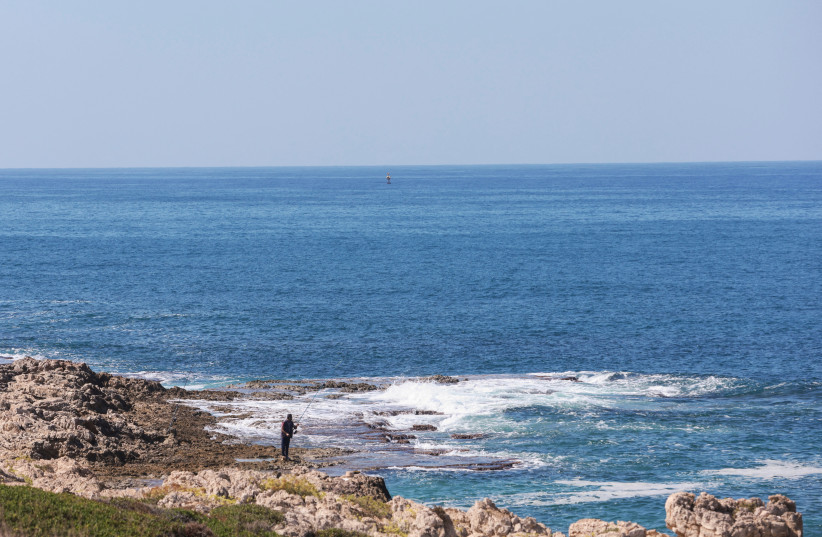If it wasn’t our only country, it would be comedic, not just sad.
- A former prime minister running for office declares that he will tear up an international agreement reached by the current government, with mediation from the United States.
- A former member of the outlawed Kach organization – an Israeli version of a political white supremacist – says that he will petition the High Court against the deal just days after saying that the same court needs to be completely rebuilt.
- An interior minister who has for weeks failed to cross the electoral threshold in polls can’t put out a coherent position on the pact. First, she wants her party leader to use his veto power to stop it, and then says she needs to wait and see what the deal actually contains. And when she does read it and hears from the nation’s security chiefs that they all support it – she votes against it.
Then there are the legal experts (a country with so many Jews would naturally have a lot). Most claim that the six square kilometers of supposed territorial waters that are moving into Lebanon’s economic zone are meaningless, and do not fall under the definition of sovereign territory as Israel and Lebanon do not have a recognized border and therefore do not have defined territorial waters.

Others explain that Israel is giving up the continental shelf (until a few days ago, maybe a handful of people knew what that was), where there might be gas and might not be gas. And God forbid, they argue, Israel gives up some part of its continental shelf.
Eliezer Marum weighs in
It is hard to find someone who can be objective about the deal, and who actually understands water, security and Lebanon.
That is why on Wednesday, as the cabinet was meeting to approve the deal, I called Eliezer Marum, a retired vice admiral and former commander of the Israeli Navy. If there is one person who can be objective it is him.
Marum is one of the most decorated officers in naval history. When we hear today about attacks against Iranian targets in Syria and elsewhere, the roots of that doctrine began during his term in office, from 2007 until 2011. It was then that the so-called Mabam began, the IDF term for the covert “War Between Wars.” Marum has a golden share in the ongoing project.
He also was commander over the raid and seizure of the Karine A weapons ship in 2002, which helped convince the Bush administration of Yasser Arafat’s true intentions; and was commander of the Navy during the raid on the Mavi Marmara flotilla, which helped keep Israel’s sea blockade on the Gaza Strip intact that was later upheld by an international commission.
He is also the officer who in 2000 – as commander of the Navy's Haifa Base – was responsible for laying the buoys between Israel and Lebanon that are known today as the “Buoy Line,” jutting out five kilometers from Rosh Hanikra into the Mediterranean.
Those buoys should not be mistaken as forming the border of Israel’s territorial waters – a country’s territorial waters go on for 12 nautical miles. This line of markers, also known as Line 291, is simply a security line that was placed where it is because it was easy at the time. Going farther out into the sea would have meant having to place a heavy anchor on each float due to the increasing depth. At the time, the IDF preferred the closer line, and has maintained it ever since as the delineation of where Lebanese ships are allowed to approach.
Another reason I spoke with Marum is that he is openly a right-winger. He wants to see a right-wing government in Jerusalem, and even considered running in the last Likud primaries but in the end, decided not to. He also recently visited the Karish gas rig on a Navy missile ship.
“I don’t come from a political position to this issue,” he explained when we spoke. “I am not talking politics. I look at the professional and security aspects. I will not lie, and the public needs to know the truth.”

According to Marum, the truth is that the deal is good for Israel, is good for Lebanon, and is good for the entire region.
First, this is an economic water deal, not a territorial water deal. Accordingly, there is no major concession of territorial water that is anyhow not internationally recognized, due to the ongoing state of war and disagreement between Israel and Lebanon over the border between the countries – something still not accepted 22 years after the IDF pulled out of the country.
As Marum explained, there is no rush to make this maritime economic deal into something it is not. After the peace deal with Egypt, he reminded me, it took another 10 years to agree to the exact demarcation of the border at Taba. The issue was brought before an international commission that included one Egyptian and one Israeli, and which ultimately ruled in Cairo’s favor.
“What is being spoken about is the Exclusive Economic Zone, and the gas fields that are there,” he said. “The principle is that Karish stays by us, and Kana – some of which today is within our water – they can develop.”
Secondly, the deal severs Lebanon’s dependence on Iran, which has been supplying the country with fuel for electricity. Hezbollah thrives on conflict with Israel. Removing one of the causes of that conflict helps reduce tension between the sides.
“Hezbollah is enjoying the Iranian fuel that comes to Lebanon, since it is the patron and arranges it all,” Marum said. “When Lebanon will have gas of its own, dependence on Iran will be cut.”
Third, in the longer term, there will be two gas fields opposite one another, one Israeli and one Lebanese. “Both will have what to lose, and it will reduce both sides’ interest in fighting with the other. If Lebanon cuts its dependence on Iran this is good, and if Lebanon has some prosperity this is good. All of this creates stability. And that is what we want – stability and quiet.”
Marum says this while acknowledging that he did not believe Hezbollah would have attacked Israel, as some defense officials had cautioned. Hezbollah was created by Iran to deter Israel from attacking its nuclear facilities – or to retaliate if Israel does. It was not created by Iran to go to war over a maritime border dispute.
And anyway, the Iranians are currently busy with the ongoing hijab protests throughout the country. “Iran does not need a war in Lebanon right now,” said Marum.
Finally, Nasrallah is unlikely to seek a war that he knows will lead to incredible destruction in Lebanon, he explained. Nevertheless, the tension does not serve Israel, and that is why a deal is worth reaching right now.
***
Until here is what Marum said. Understandably, he did not want to weigh in on the role politics is playing in this entire debate. That is not his role. But I can.
Netanyahu's hypocrisy
Let’s imagine for a moment a different reality, one in which Benjamin Netanyahu was still prime minister, and had himself reached such a deal with Lebanon. He would have highlighted the security benefits, the royalties (a few hundred million dollars) that Israel would receive, and that while this is not a strict normalization agreement with Lebanon, it is nonetheless an economic agreement, which by definition makes Beirut recognize Israel for the first time. What this will lead to, no one can know.
Netanyahu would have hailed all of the above as a huge diplomatic accomplishment. He would have spoken about how the entire defense establishment is united in support of the deal (the head of the Mossad, the Shin Bet, Military Intelligence, and others), and how he was even able to receive written guarantees from the US.
Sounds good, right? The problem is that all of the above is meaningless when there is an election around the corner. Netanyahu and his supporters are instead calling the deal anti-democratic, despite the High Court rejecting petitions against it; and that it is a concession to Hezbollah, which as Marum explained is actually weakened by the deal.
What was really shocking was the way Netanyahu’s people came out and belittled the significance of the American guarantee. This was seized on by some US Republicans like former ambassador David Friedman, who questioned why an American guarantee was even good for Israel.
Does this really need to be explained? America is Israel’s closest ally, a country that provides the Jewish state with billions of dollars in military aid, advanced weapons platforms, crucial intelligence, and with diplomatic cover at international forums like the UN.
Do they really want to argue that all of that is meaningless because the deal was reached by someone who is not Netanyahu, and under a president who is not a Republican.
Be serious.
And let’s not forget something else: Netanyahu was prime minister from 2009 until 2021, 12 years during which Hezbollah increased its arsenal from 15,000 rockets to the more than 150,000 that it has today. Tenfold. And now he wants to lecture how an economic gas deal is a concession and makes the terrorist group stronger?
One last piece: besides Ayelet Shaked, who voted against the deal most likely because of her desperate political situation, and Yoaz Hendel, who abstained, the entire cabinet voted in favor. Ministers from seven different parties all raised a hand in favor. That should tell you something.
